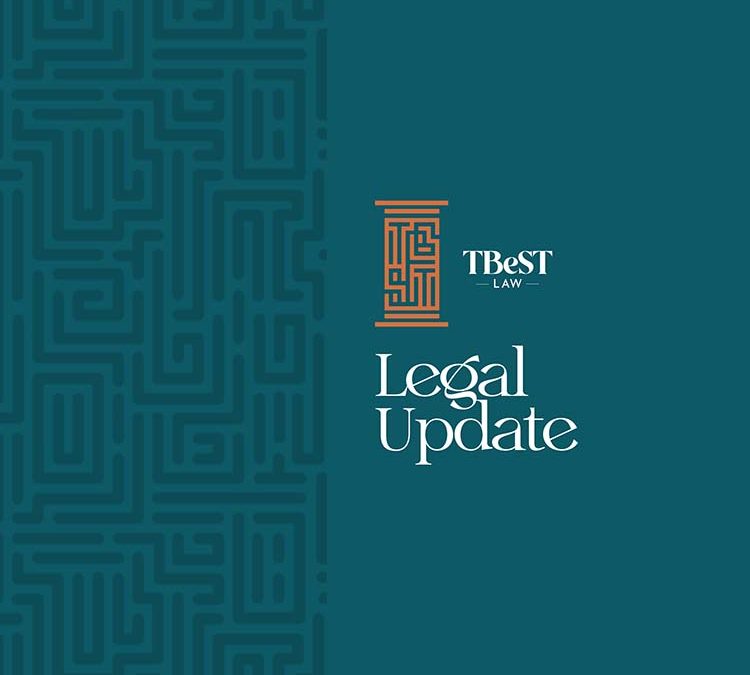Legal Update on the New Excise Stamp Management Directive No. 1004/2024: Key Regulations and Requirements
Legal Update on the New Excise Stamp Management Directive No. 1004/2024: Key Regulations and Requirements
The Ministry of Finance issued an Excise Stamp Management Directive No. 1004/2024 (hereafter the “Directive”) in June 2024, with the following aims:
- enhancing tax collection,
- combating illicit trade, and
- protecting public health by establishing a framework for the implementation of excise stamps on excisable goods in Ethiopia.
The Directive outlines procedures for the affixation, tracking, and management of excise stamps on various excisable goods.
While the Tax Authority (the Ministry of Revenues) is expected to issue a separate directive to provide the mechanism by which Excise Stamps will be affixed to goods, this update provides an overview of the key provisions and requirements under the Ministry of Finance’s Directive.
Goods Requiring Excise Stamps
The Directive defines excise stamp as “a physical stamp, digital stamp or any mark that the Ministry of Finance may approve for affixation or printing on excisable goods.” This stamp, according to the Excise Stamp Proclamation, is a mark or an object affixed on excisable goods to indicate that Excise Tax has been paid on such goods.
The Directive mandates excise stamps for the following categories of excisable goods, whether imported or manufactured domestically.
- Alcoholic Beverages: compounded spirits, beer, wines, fortified wines, and other similar products of alcoholic content of more than 0.5%.
- Non-Alcoholic Beverages: Non-alcoholic beer, carbonated beverage and sweetened beverages including those intended to be mixed into an alcoholic drink, and bottled water.
- Drink products for human consumption in ready to drink form in which ingredients such as sugar, fruit juices, vegetable juices, natural or artificial flavoring preparations, water, mineral water, herbs, spices, other botanical substances and/or carbon dioxide are added to alcoholic products, where the volume of alcoholic content is at least 2%.
- Tobacco Products: Cigarette, cigarette tobacco, roll your own tobacco, cigarette papers, beedis, kreteks, smokeless tobacco, cigars, hookahs, pipe tobacco and all other combustible or non-combustible tobacco products for human consumption.
The Directive also provides for a list of goods that are exempt from the excise stamp requirement. Accordingly, goods that are destined for export are exempt from the requirement. The Directive does not also apply on goods which are on transit through Ethiopia, below a commercial quantity imported through international portal services, imported as samples, and purchased from a duty-free shop.
The Directive stipulates locations and time where the excise stamp must be affixed. In this regard, excise stamps must be affixed:
- On locally manufactured goods, at the production facility immediately after packaging;
- On imported goods, at customs posts or places designated by the Tax Authority before clearance for importation of the goods; and,
- Optionally, based on the discretion of the Tax Authority and subject to conditions specified by the Authority, at the production facility in the exporting country.
Manufacturers and importers must declare the use of excise stamps immediately after affixation and maintain records of stamp utilization. The Tax Authority is responsible for monitoring compliance and taking action against irregularities. The Ministry of Finance is yet to provide the specific mechanisms for affixing Excise Stamps to imported goods.
Unique Identifiers of Excise Stamps
Excise stamps must incorporate Unique Identifiers (hereafter “UI”) that deter counterfeiting, facilitate tracking, and enable the verification of authenticity. UI is a numeric or alphanumeric string that is associated with a single unique code to monitor and regulate the production, storage, and movement of excisable goods in Ethiopia. The UI must comply with ISO/IEC 15459-2 standards and be presented to and approved by the Tax Authority. Relevant economic operators (manufacturers, importers, wholesalers, and distributors) must record the movements of excisable goods in the UI system.
The UI should incorporate the following information:
- The place of manufacturing;
- The manufacturing facility;
- The product description;
- The intended market of retail sale;
- The intended shipment route; and,
- Where applicable, the importer into the country.
The Tax Authority is authorized to delegate the generation of UIs to an independent third-party issuer with a mandate to ensure the uniqueness of identifiers and maintain high standards of confidentiality. The third-party issuer will be selected through a public procurement process to handle the generation of UIs, printing, and supply of excise stamps. The Issuer will also install and maintain the necessary systems for managing UIs and excise stamps. Manufacturers and importers are obliged to provide necessary information to the ID issuer when requesting UIs.
Application and Fees for Excise Stamps
Applications must include evidence of the importation or production of excisable goods and comply with the format and process designated by the Tax Authority. However, the Authority may authorize an importer of excisable goods to receive excise stamps before submitting evidence of importation if the importer enters an undertaking according to the requirements of the Authority. The Authority is required to act on the application within 5 (five) working days from the date on which a complete application is submitted.
Installation and Composition of the Excise Stamp Management System
Manufacturers and importers must facilitate the installation of the Excise Stamp Management System at their premises. The installation cost will be covered by the manufacturers of importers themselves. The system will include software for managing UIs, mobile applications for verification, authentication equipment, and devices for production accounting and data transmission. Installation and integration of the system will be supervised by an authorized officer of the Tax Authority, and preventive and corrective maintenance will be handled by the appointed Issuer.
Return, Damage, and Transfer of Excise Stamps
Unused excise stamps must be returned to the Tax Authority under specified circumstances, such as cessation of manufacturing or defects in the stamps. The Issuer will refund fees for returned stamps, except in cases such as cessation of manufacturing or discrepancies in declared imports. Damaged stamps must be preserved for verification, and unaccounted stamps will result in the computation of excise duty based on the highest excise rate for the respective goods.
Supervision and Refusal
The Tax Authority will supervise and monitor the process of installing the Excise Stamp Management System, ensuring compliance with the Directive. It may refuse to issue excise stamps to a person if the person has not fully accounted for excise stamps previously issued to him/her and failed to fully comply with the provisions of the Excise Tax Proclamation relating to filing of returns and payment of excise tax. Failure to observe obligations relating to Excise Stamps is made an offense by the Proclamation punishable with imprisonment from 3 to 5 years and a fine of ETB 50,000 to 100,000.
Disclaimer: This update is meant to inform and provide general insight into recent regulatory changes and should not be construed as legal advice. It’s always essential to seek legal advice tailored to your specific circumstances. We do not accept any liability for decisions made based on this general update.


